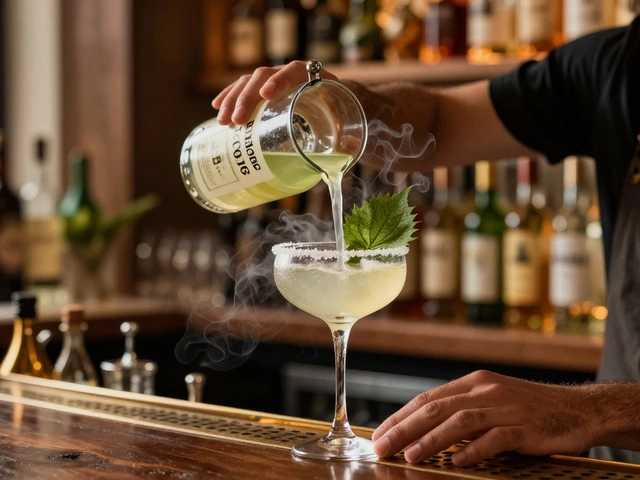Safety of Old Gin: Quick Checklist for Home Bartenders
Got a bottle of gin that’s been sitting on the shelf for a while? Before you pour it into your next cocktail, run a simple safety check. Gin is a high‑alcohol spirit, so it doesn’t spoil like juice, but it can lose flavor or develop off‑notes if stored poorly.
How Long Does Gin Really Last?
Unopened gin can sit for years, even a decade, without going bad. The high alcohol content (usually 40% ABV) keeps microbes at bay. Once you crack the seal, the clock starts ticking. Most experts say you have about 1‑2 years for the best taste, but the spirit remains safe to drink longer if you keep it airtight and away from light.
Signs Your Gin Might Be Past Its Prime
Look, smell, and taste. If the liquid looks cloudy, has sediment, or shows a film on the surface, it’s a warning sign. A sharp, chemical smell instead of the usual botanical aroma means oxidation has taken over. When you sip, any sour, metallic, or bitter aftertaste that wasn’t there before signals it’s time to toss the bottle.
Storage matters a lot. Store gin in a cool, dark place – a pantry or cupboard works fine. Avoid the fridge; the temperature swings can stress the spirit. Also, keep the cap tight. Every time air gets in, the delicate flavors start to fade.
If you’ve transferred gin into a decanter or a different bottle, make sure the new container is clean and sealed. Even a tiny amount of water or residue can cause unwanted reactions.
When in doubt, do a quick taste test with a small splash. If it still smells fresh and the botanicals shine through, it’s probably fine to use. Bad gin rarely makes you sick, but it can ruin a cocktail and your palate.
Want to extend the life of your open gin? Add a bit of vodka to dilute any off‑flavors, or switch to smaller bottles so you finish it faster. Some people keep a few ounces in a spray bottle for quick cocktail fixes – that way the main bottle stays sealed longer.
Finally, remember that gin is forgiving. Even if the flavor has mellowed, you can still use it in recipes that call for more robust spirits, like a gin‑based hot toddy or a cooking reduction for sauces.
Bottom line: Check the look, smell, and taste. Store it dark, cool, and sealed. If it passes those three steps, your old gin is safe to enjoy – no need to panic over a dusty bottle.






Categories